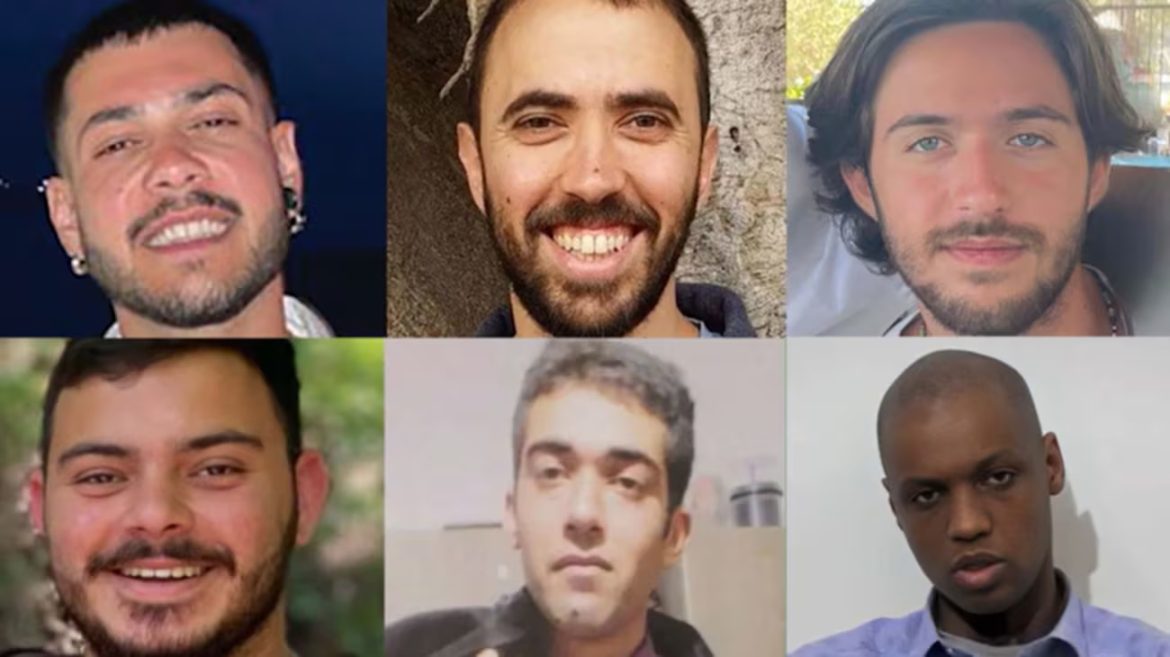Hamas announced plans to release six living Israeli hostages on Saturday and return the bodies of four others on Thursday.
The six hostages are the last living captives to be freed during the first phase of the ceasefire, which also includes exchanges with hundreds of Palestinians held in Israeli prisons.
The second phase, which would involve the release of dozens more hostages in exchange for a lasting ceasefire and an Israeli withdrawal, remains under negotiation.
Hamas leader Khalil al-Hayya, in prerecorded remarks released Tuesday, confirmed that the Bibas family would be included in the handover of four bodies.
The Bibas family, consisting of Shiri Bibas and her two young sons, Ariel and Kfir, has become emblematic of the human cost of the conflict.
Kfir, at just 9 months old at the time of his abduction on October 7, 2023, was the youngest hostage taken during Hamas’ attack that sparked the ongoing war.
However, Israel has not confirmed the deaths of the Bibas family members, and the Prime Minister’s office has urged the public to refrain from circulating unverified information.
Surviving members of the Bibas family, in a statement released Tuesday, expressed uncertainty, saying, “Until we receive definitive confirmation, our journey is not over.”
The family’s situation has been at the center of much attention, as they are among those who embody the ongoing hostage crisis.
The six living hostages set for release include Eliya Cohen, Tal Shoham, Omer Shem Tov, Omer Wenkert, Hisham Al-Sayed, and Avera Mengistu. Cohen, 27, Shem Tov, 22, and Wenkert, 23, were abducted from a music festival. Shoham was taken from the community of Kibbutz Beeri. Al-Sayed, 36, and Mengistu, 39, have been held since crossing into Gaza years prior to the October attack.
This rapid acceleration in the release of hostages marks a shift from the original ceasefire deal, which initially called for the release of three hostages on Saturday, with three more to be freed a week later.
The deal also stipulated the return of bodies by the end of the first phase. Israel is expected to continue releasing hundreds of Palestinian prisoners, including those convicted of deadly attacks and others detained without charge, as part of the ongoing negotiations.

